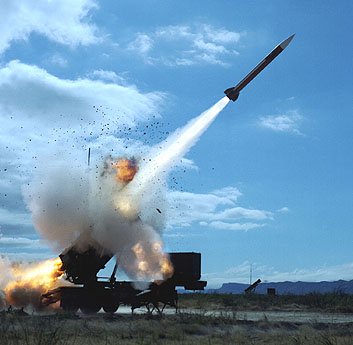Turkish officials said Friday the proposed NATO missile defense system should not target any country, including Iran and Syria, Xinhua reported.
Asked if Turkey demanded Syria and Iran to be excluded from the NATO list of "threats," Turkish National Defense Minister Vecdi Gonul told reporters in Ankara that Turkey could not target any country.
He made the remarks after returning from a meeting of foreign and defense ministers of NATO member countries in Brussels on Thursday, when details of the alliance's new strategic concept was discussed.
"During the meeting in Brussels, we told the U.S. officials that Iran and Syria should not be cited as 'threats' for the NATO' s planned missile shield," a Turkish Foreign Ministry official who declined to be identified told Xinhua on Friday.
A NATO member since 1952, Turkey demands the missile shield be launched under the framework of "deterrent" concept and opposes naming of a particular state in NATO papers as a threat against the alliance.
Turkey also conveyed to the United States that the shield should protect the territory of all NATO members, including Turkey, rather than some of the NATO territory, the official said.
NATO Secretary General Anders Fogh Rasmussen has proposed to expand NATO's existing missile defense system, which currently only covers deployed troops, to protect citizens of all member states by linking up anti-missile systems of member states.
The United States has been talking to Turkey as well as Poland, Czech Republic, Romania and Bulgaria, over the missile shield.
The Turkish defense minister said Friday that Turkey was still assessing the proposed NATO missile defense system, while denying that the United States was pressing Turkey to make a decision, local media reported.
Negotiation on the issue was going on but "it should not be viewed as (Turkey's) reservation," Gonul was quoted by the semi- official Anatolia news agency as telling reporters in Ankara.
Turkey was weighing the compatibility of the proposed missile system with Turkey's own missile capabilities, Gonul said.
The proposed NATO missile defense system could bring significant cost reductions for Turkey in terms of missile systems, he said.
Deputy Assistant Secretary of Defense for European and NATO Policy Jim Townsend said in a press briefing last month that Turkey played a major role in the U.S. missile defense system due to its geographic location.
Rasmussen told reporters Thursday that he was "quite optimistic "the anti-missile shield would be adopted at the alliance's summit in Lisbon, Portugal, on Nov. 19 to 20.
He said the ministers had reached broad agreement on the anti- missile shield, though some technical problems still remained to be solved.
The NATO's new strategy aims to reshape the alliance in the next decade to meet emerging threats. Once adopted at the Lisbon summit, it will become NATO's third strategy since the end of the Cold War.






